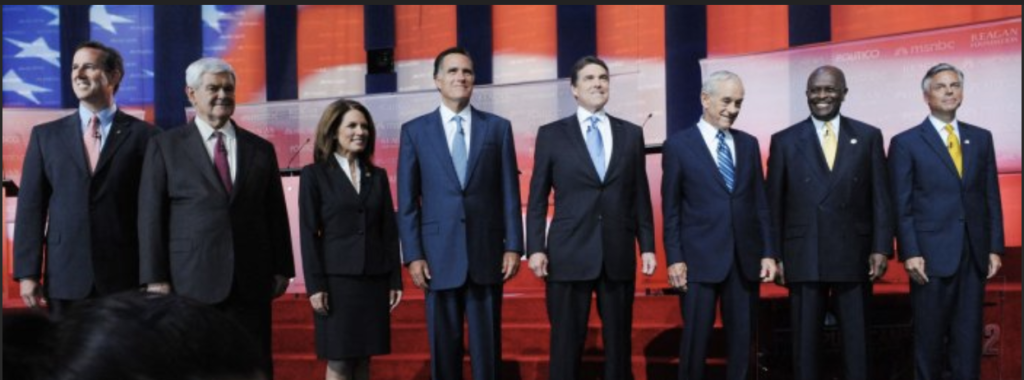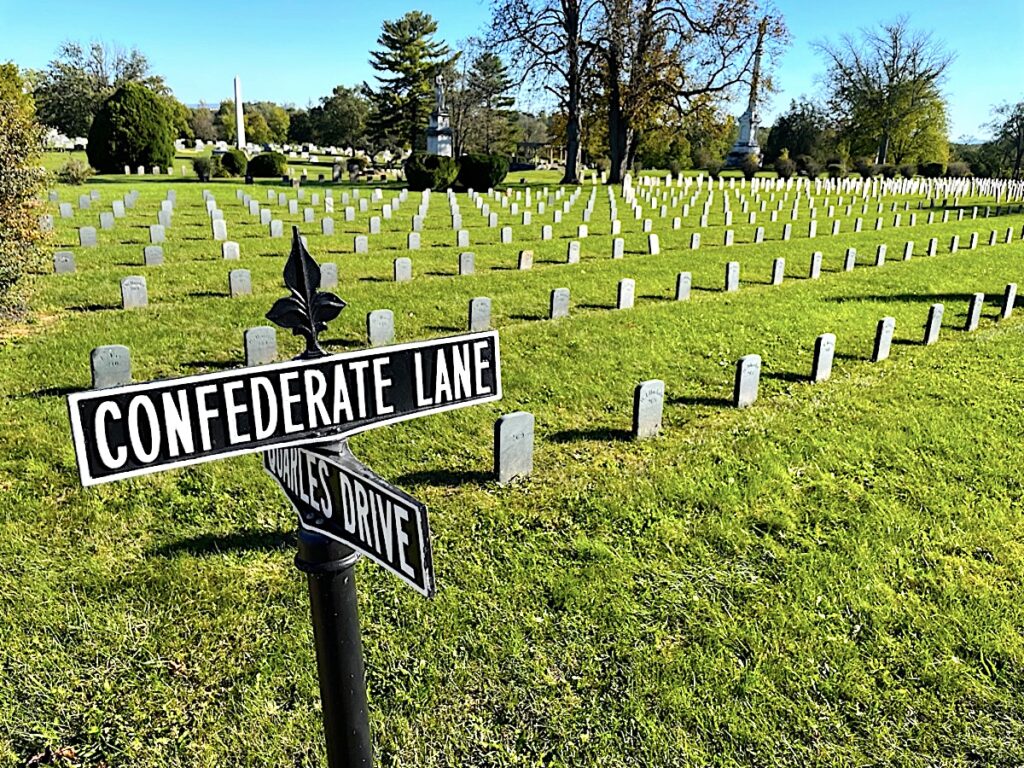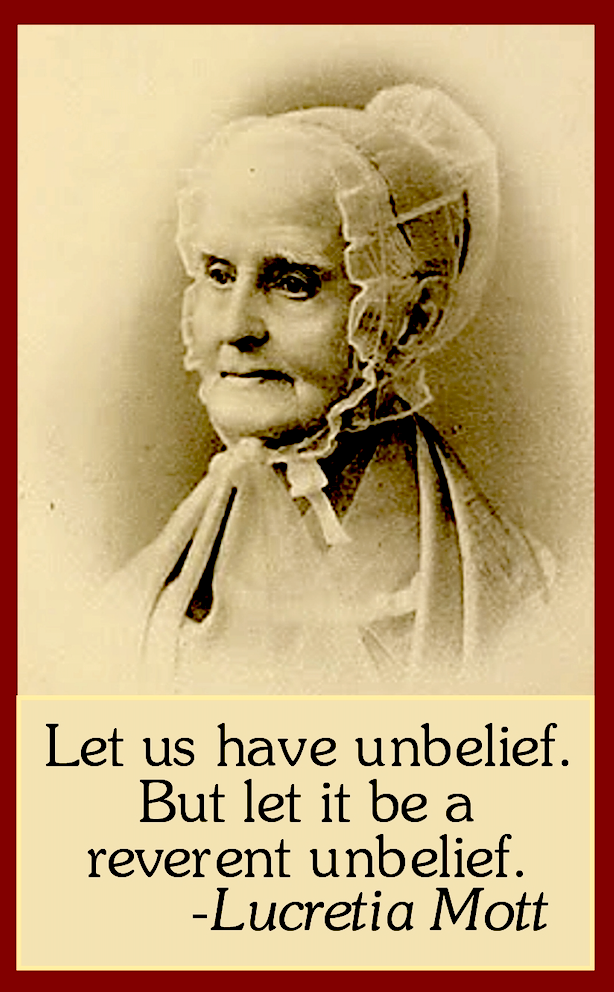September 7, 2011: Cheering for God in the Reagan Library
 In my last paid job, at a Quaker peace project next to an enormous military base during the height (or better, the depths) of the Iraq-Afghan wars, I spent a lot of time looking for spiritual resources for that work, and the life that went with the job. For a long time it seemed pretty hard to find any. I read a lot of academic theology and other “spiritual” works. With a few notable exceptions (to be dealt with in future posts), for a long time it seemed pretty hard to find more than an occasional nugget; too much was weak tea or thin gruel.
In my last paid job, at a Quaker peace project next to an enormous military base during the height (or better, the depths) of the Iraq-Afghan wars, I spent a lot of time looking for spiritual resources for that work, and the life that went with the job. For a long time it seemed pretty hard to find any. I read a lot of academic theology and other “spiritual” works. With a few notable exceptions (to be dealt with in future posts), for a long time it seemed pretty hard to find more than an occasional nugget; too much was weak tea or thin gruel.
But then, in early September 2011, after watching a televised Republican presidential candidates’ debate, hosted by the Ronald Reagan Library in California, I abruptly realized that in fact I had found some, and they had crystallized into convictions.
Looking around at our situation eleven years later, with a major, dangerous European war on one side, and the stirring of domestic uprising closer to home, I realize they have pretty much stuck with me. Not that I am now a guru, or a paragon; but a candidate for the status of older, sadder and a bit wiser, maybe.
The initial realization came when prolonged, lusty cheers and applause broke out at the GOP debate, not once but twice, after it was stated on the stage that 234 executions had been conducted in the state of Texas during the tenure of its then-current governor, he being among the candidates.[1]
I speak of these ovations not to renew the hand-wringing about them among my liberal colleagues — though I fully shared their revulsion. Besides, murderers deserve justice. Rather, the hosannas of horror are mentioned because, as I took in this incendiary moment, I unexpectedly saw in them my belief in God, as if silhouetted against a backdrop of fire, and quickly went to the keyboard to set it down.
The result was not a full or perhaps even coherent explanation thereof, if indeed such is possible. But at least a vivid sketch of their major contours and defining marks.
Perhaps the first of these marks is a clear sense that there is in the universe a Something which shares my repugnance at such barbarism. God is somehow one of the Good Guys. (Bear with my pronouns; they’re shorthand, for what words can’t capture. This goes for the noun too; insert your own if needed. I’ll vary them some. But I need to add that the notion we’re supposed to be comfortable –or “safe” — with any expressions about them seems to me misguided.)
In any case, this Something is quite willing to let suspicions and hints about Its/Their presence be interpreted in ways that lend a sense of righteousness to such cries for blood. After all, It evidently created a world in which, to survive, we have to routinely tear apart and eat all manner of other creatures, animal and vegetable. Further, there is no doubt that most of those doing the cheering that September night considered themselves religious people of a quite orthodox sort. And their bloodthirsty sentiments were hardly new.

This was, remember, almost four years before the Orange Demon descended his fool’s gold escalator to kickstart a superspreader multilayered pandemic, the continuing plague from which warp speed vaccines (all of which I’ve taken) don’t protect us. In 2011, I did not have or need Escalator Man to blame; I was already well-familiar with the murderous currents coursing though the American “Christian” community. The pathology and its growth was not new.
Sometimes I wonder why this religious divergence is permitted. A few wise theologians think it’s one of God’s ways of undermining idolatry; but it might just as easily be the Something’s sloppiness. In more sentimental moments, I take it as a sign of benign patience, permission for new and better ideas to sprout alongside older and cruder ones. But the cheers from the library banished that comforting notion soon enough.
Whatever, despite His/Her tilt toward the victims and the underdogs, this Something seems content — or at least resigned– to letting this divergence about matters human and divine play itself out; or in less exalted terms, to let the cookie of history crumble. This sardonic passage from Ecclesiastes 8 (the Bible stayed on my reading list), one of my favorites, sums it up:
8:16 Whenever I tried to become wise and learn what goes on in the world, I realized that you could stay awake night and day 17 and never be able to understand what God is doing. However hard you try, you will never find out. The wise may claim to know, but they don’t.
So I knew it was then quite possible that the Chief Executioner of Texas could be elevated to become Executioner In Chief of the United States. (Update: that didn’t happen; but we’re hardly out of the woods.)
After all, the Something had already permitted the promotion of another assembly-line-Terminator Texas governor to the White House. That was in 2000 [2]; and the results did not disappoint the bloodthirsty. The piles of bodies left in that earlier Texan’s wake were so many and so high they could hardly be (and years since, have not yet been) counted. Indeed, he almost managed to make counting them a crime. (For that matter, perhaps he did succeed, and we just haven’t realized it yet.)
Yet if this Something is, as the Swiss thinker Karl Barth once put it, “Wholly Other,” that doesn’t mean to me that She is wholly detached from this madhouse below. As many stories in the Bible suggest, amid the pointless pain and futility of so much of life, He occasionally intervenes, meddles in, or even trifles with, life and history.
This meddling is a thing of here and there, now and then, hidden or flagrant, in no reliably discernible order or pattern. Theologians like to call these “revelations” or even “miracles,” terms of which I have become very wary. Those who build logical systems on favored subsets of such presumed revelations are, I do not doubt, largely fooling themselves; unfortunately they often fool many followers as well, often reaping personal fortunes for themselves, but with hazardous or bloody results for the followers or their victims.

But even with the concomitant uncertainty and absurdity, I decline to let go of the Something’s sometime intrusions, because I am persuaded not only have I seen them happen, I have also watched some taking a shape that once was known as Providence.
Providence — a risky term for sure, but I like it. And when Providence comes, it is as irresistible as an earthquake, or a baby’s unfolding smile.
Don’t ask me to get specific; the data are entirely existential, and anyway they don’t “prove” anything. I long ago decided that the atheists have all the best rational arguments here; for me, the other, theistic side is a mishmash of internally interpreted, self-authenticating “evidence” which would not stand up in court. But legalism is one thing; life is another.
I can’t defend these convictions, for them or myself; but I just can’t ignore them either. What was it that the mystic Blaise Pascal wrote: “The heart has its reasons, which Reason does not understand”? I would echo: Experience has its persuasiveness, which argument and logic can’t overcome.
Which is why I consider myself a “failed atheist.” Experience has overcome (for awhile now anyway), the arguments. Or, more concisely, My Karma ran over their Dogma. Besides, the details would only invite distracting questions or temptations to mockery, and there’s no time for distractions here. So I’m reserving any details for Volume 4 of my memoirs. Save the mockery for then.
Another key contour of this belief in the Something is that it does not yield serenity or eliminate the confusion I often face here and now. Why do the innocent suffer? For that matter, why –above all — do I suffer??
Damned if I know, and I hate that; but there it is. Where is it written that I’m entitled or qualified to know everything? (I think it’s in a file on my phone, but I forgot the password.)
Or death: it happens to all the other species; are we different? Maybe, but not in that respect. Nor does the prospect of mortality point me toward a cosmic sorting out in some score-settling afterlife; I know wish-fulfilling fantasies when I see them; mostly anyway.
Concerning that hereafter, count me a confirmed agnostic with pronounced skeptical tendencies. Besides, I’m a liberal Quaker, and we don’t believe in hell; unnecessary, since we have committees instead. Further, I loudly assert that this stance comports with most of the biblical worldview as well.
As for “making sense” of life– yes, there are flashes, and occasional clarity which I am bound to follow.
Clarity, but not certainty; I’ve walked through a Civil War cemetery in Winchester Virginia, where rows of white Union Army gravestones stand vigil next to parallel rows of grey slate Confederate markers. All in both sections were clear enough to follow the paths that brought them there.

So even my times of clarity are like an uncertain beacon in a deep fog; for that matter, the Bible is foggy too; evidently the Something wanted it that way. Theologians call the canon’s ample residue of humdrum routine and random outrage “mysteries,” which is often BS, but is yet another of their terms I intend to keep.
Thus this settled awareness of the Something did not produce any special confidence that the howling crowd in Reagan’s library would ultimately be turned back. Not at all, though their hopes were high when they settled on Mitt Romney for 2012, only to have him buried by Barack Obama. Four years later, of course, it was our turn to tremble. I can well imagine the Something as prepared to let humanity burn or blow itself up, then rebooting the double helix experiment in another obscure corner of the universe of universes.
As this glum view suggests, I do believe in Evil, and even, pardon the foul language, in Sin. Not as DNA (I despise Calvinist predestination), but as the reliable result of our personal finitude, and our finite setting. I affirm this not from doctrine but because I’m a sinner. I also see few follies greater than pretending Evil/Sin don’t exist, individually or corporately. (I believed in systemic racism way before it was cool; about “anti-racism” programs, I’m not so sure.) My own iniquities are mainly paltry and pedestrian; but I have glimpsed great evil, what it has done and can do.
Echoes of both were heard that night in Reagan’s library.
So add me to the roster of those who “hunger and thirst after righteousness,” even with my doubts about the prospects for achieving it. I’m also less than sanguine about forgiveness — it’s another religious term, along with atonement, that sets my teeth on edge.
Rather, what I see more often is renewal, moving on, letting go; I’m told many Buddhists seek that. Do the buds of spring “forgive” the frosts of winter? Must the mother robin “atone” for stuffing the wriggling worm into its hatchlings’ straining beaks? Could the suited mob gathered under Reagan’s grinning mug, cheering the preening Texan executioner really do otherwise, given their conditioning? (Probably not, but that’s no excuse for not pushing back on their cruelty, the American gulag, state murder as policy, and war as a tradition.)
Yet there are also moments of change, of purging, of pardon: “Neither do I condemn thee,” Jesus said. “Go and sin no more.” (Did I mention that I like Jesus a lot? Much of the Bible too. More about that another time.)
So here I stand beside one of my handful of exceptional authors, a French theologian named Jacques Ellul, who argued that the capacity to sustain anything like “hope” in the face of today’s perils is not a matter of calculating odds, but rather a sign of the Something at work among us.
That something used to be called “grace,” which is another theologian’s term I’m of a mind to retain. I’m hanging on to grace because I’ve experienced it, far more times than I ever deserved. (Again, look for Volume 4 for details.) But it’s also what I pray for every day, or as often as I remember to.
I should have prayed especially hard after the clamor in California. But whether I remembered to or not, the bellowing was useful in this one clarifying respect at least: it helped me speak this credo.
Let that be a wilted flower on the graves of the 234, even on the ones that deserved the needle, and the many more who will be in line behind them, should that Reagan library rabble have its way. If they do, I won’t ask God’s forgiveness — but mercy, oh yes.
I’ll plead for divine mercy; but do I believe in it?
Let me get back to you on that.
— September 11, 2011; updated.
Postscripts from May, 2022. If you’ve come this far, don’t skip them.
PS. An old Catholic doctrine that I’ve kept & refurbished from my Roman childhood is that of the Church as the “mystical body of Christ”, which sort of means Jesus’ & Od’s invisible presence here. Many of us are members of it (at least part-time), but you can’t see it except in a glimpse now and then. I’ve had such glimpses. The Catholic version reserves membership in this body only to certified Catholics; but even Jesus said that was baloney (Cf. the Good Samaritan, etc.)
PPS. About this thing called “chosen people.” Its a phrase most liberal Quakers I know are repelled by, and I long avoided facing up to. But if we Quakers (and many other sects) engage our history with any honesty, it will show we’re steeped in the notion from the beginning, and it’s just denial and folly to ignore it.
In much of the Bible, the Jews are said to be one such, selected by God not for superiority but because of some unsearchable divine purpose. (That purpose appears to be so unsearchable even the biblical God can’t figure it out, given how often He complains about and denounces the Jews in his own Books. Maybe there are anger issues on high too?) In the “new” Testament, this special people is either expanded, divided, or multiplied (the math varies by doctrine), to include those who became called Christians; and they soon begin squabbling about it among themselves, evidently to catch up.
More important for me personally, in the Catholic tradition I was raised in, there are in fact many such chosen peoples; the belief is that God puts out special calls to people like St. Francis, within the church, to gather a people with a particular group character, to do various kinds of work. Some of these orders, such as the Benedictines, are more than a thousand years old; others have come and gone. In theory they are loyal to the Pope and designated church authorities; so ideally (though most days are not ideal), you get functional diversity in unity.
I happen to believe that this “chosen-people-among-chosen-peoples” thing is real. But the “orders” extend far beyond the boundaries of the visible Catholic church, into that fuzzy realm of the “Mystical Body.” In it, there are many non-Catholics and even “unbelievers” who have been called into various new motley peoples to do pieces of the divine work. And I believe the Quaker founders were right: the Religious Society of Friends, is one of these gathered peoples; not better; just gathered.
Our founders in fact said this many times (though they spent some generations stuck on the “better” bit). Nowadays though many Friends pass over these parts of the old books, and even shudder at the term “chosen,” for various unconvincing reasons. But for me it’s still there, and working; if the good stuff Quakers have accomplished doesn’t prove this, our ongoing quarrels should.
NOTES
[1] The sitting Texas governor in 2011 was James Richard “Rick” Perry, who served from 2001 til 2015, a total of fourteen years. The 2011 cheers did not translate into support for his presidential candidacy.
[2] George W. Bush was Texas governor when the Supreme Court declared him the winner of the 2000 presidential election. In his five year tenure as governor, he approved 152 executions, or one every 12 days. Rick Perry lagged somewhat, with an 18.3-day average interval between executions, for a total of 279 in his full 14-year tenure. Later, Perry was Secretary of Energy in the Orange cabinet, and after the 2020 election, he is credibly reported to have been a promoter of the fake electors scheme to overthrow Joe Biden’s election victory.


Thinking about evil, I think there are two sorts: intentional and incidental. The first and most vile, the intentional, is actually pathological, and this variety also has two types. There are individuals who lack, as an aspect of their personality, empathy: they are sociopaths/psychopaths, damaged in some fundamental way. The other sort is intention driven by desperation/frustration that the individual does not know how to express/handle in more appropriate ways. This, arguably, is also a form of pathology.
Finally, there is incidental evil. Joseph Campbell is sometimes credited with the idea that there is no action or inaction that is not evil for someone. Most people, acting in more or less good faith, make the best decisions for themselves and their family their circumstances permit in accordance with their understanding of the reality that surrounds them. Often (most times?) that understanding is flawed in some fundamental way leading to consequences that are evil. There are, of course, numerous examples where these categories are blended or it is not possible to fit a set of actions into this perhaps overly simple formulation, but I find it a useful guide to evaluating most situations.
TRY THIS ON FOR SIZE:
https://reelrundown.com/news/family-ties-michael-j-fox
I am content with letting God be God and acknowledging that I have no clue how God functions. I believe that God is the source of all that is good. I also believe that wee are here to do the work of God, ie to love each other in a very real way and to help each other however and whenever we can. I believe that theorizing about God’s ways is fine, for those who choose to do that, but to pretend that anyone understands God’s mind is delusional at best and can cause much harm to many people.